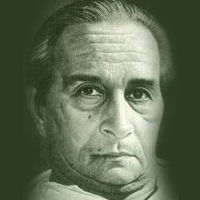
Harishankar Parsai: The Legendary Satirist Who laid the revolution of a new Nation -
Harishankar Parsai who lived from Aug22,1924 to Aug10,1995) was a Hindi writer. Being born in Jamnia village near Itarsi in Hoshangabad district, Madhya Pradesh. He has procured his M.A. in Hindi from Nagpur University. He had also been a pilot in World War 2. Having pursued writing along with his service for a certain duration, he resigned from his job and adopted writing as a full-time career. He accommodated himself in Jabalpur (M.P) and started a literary magazine called Vasudha which later on became very popular in those days. Despite it being highly praised, he had to stop the magazine after the publication suffered economic losses. The great success achieved satirist left this world on August 10, 1995, in Jabalpur. In the late centuries, he had won Sahitya Akademi Award in 1982, for his satire, "Viklaang Shraddha ka Daur" 'विकलांग श्रद्धा का दौर' .Hari Shankar Parsai used to provide answers to readers in a column "POOCHHIYE PARSAI SE" for a Hindi Newspaper DESHBANDHU published in regards of Raipur and Jabalpur press.
Some truly inspiring teachings of Harishankar Parsai for the new generation:-
“आत्मविश्वास धन का होता है, विद्या का भी और बल का भी, पर सबसे बड़ा आत्मविश्वास नासमझी का होता है ।”
― Harishankar Parsai, निठल्ले की डायरी
“मैं ईसा की तरह सूली पर से यह नहीं कहता - पिता, उन्हें क्षमा कर। वे नहीं जानते वे क्या कर रहे हैं। मैं कहता - पिता, इन्हें हरगिज क्षमा न करना। ये कम्बख्त जानते हैं कि ये क्या कर रहे हैं।”
― Harishankar Parsai, विकलांग श्रद्धा का दौर
“मैंने कोई विज्ञापन ऐसा नहीं देखा जिसमें पुरुष स्त्री से कह रहा हो कि यह साड़ी या यह स्नो खरीद लो । अपनी चीज वह खुद पसन्द करती है, मगर पुरुष की सिगरेट से लेकर टायर तक में दखल देती”
― Harishankar Parsai, निठल्ले की डायरी
Kavishala presents a true incident based on Harishankar Parsai's past experiences :
While he was fast asleep one night he had the strangest dream. In that the several ministers of the central and state governments were standing in midst of the city’s central park, wearing army fatigues and carrying swords in their hands (the fatigues were made of pure Khadi, naturally). As black marketers and profiteering grain merchants were frog-marched before them, the ministers sliced off their heads with their swords.
There were periodic announcements on the public address system: “Begone, you who starve the people. Bring more enemies of the people before us; we shall cut off their heads. Make it quick, we have to go to another city as well.”
The crowd was beside itself with joy. On one side women stood with their ceremonial thalis, waiting to celebrate the ministers’ deeds by performing before them.
The ministers’ faces were devoid of any expression of abhorrence or anger. On the contrary, their eyes were brimming with love – no doubt this discipline was the result of half a century of training in ahimsa, affection, and kindliness.
The other morning he narrated to Kaka his dream. He thought for a while and then he said: “The reason for this dream is clear. Day after day you read in the newspaper the threatening statements made by ministers, hence such a dream. But the dream does not augur well.”
He said: ‘Why, Kaka? What’s wrong with such a dream? It only signals that the government is always ready to gird itself – prepare itself – to destroy the enemies of the people.”
Kaka guffawed. “Great! Gird – what an excellent word you used. It is at the root of all the trouble. It is this word that does not allow any work to be done. Mini
